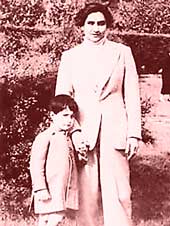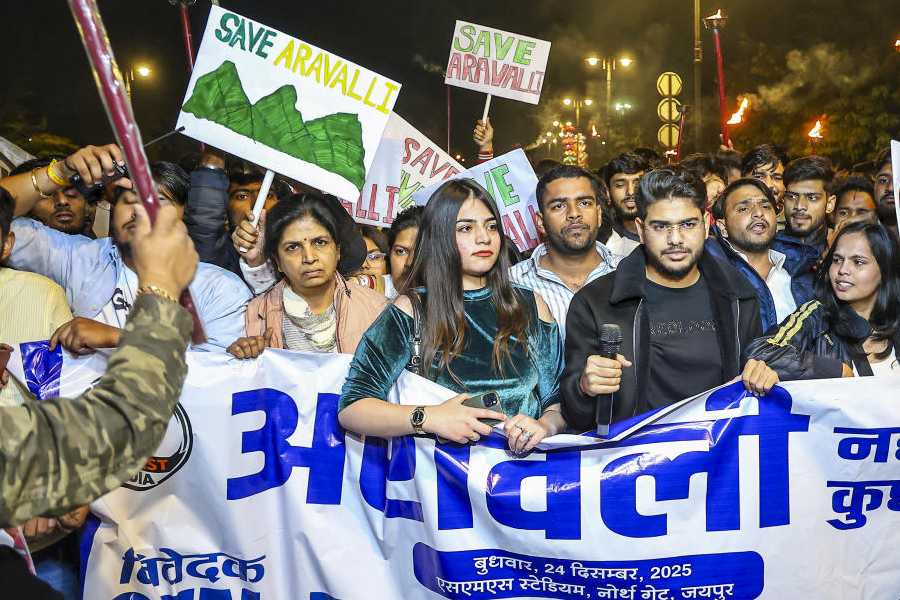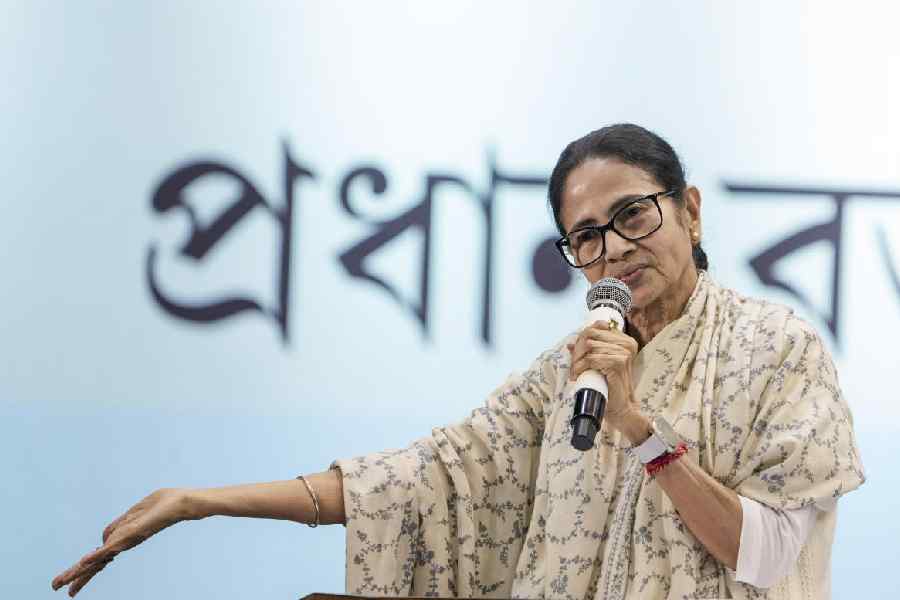|
|
| A romp of a life |
Memoirs of a Rebel Princess
By Abida Sultaan,
Oxford, Rs 595
To most people in India, the name ?Bhopal? conjures up images of that dreadful December night twenty years ago. The more history-minded may remember that Bhopal was among the more important princely states of British India, and was unique in having been ruled continuously by four generations of women. Had history not intervened, the author of these lively and remarkably frank memoirs might have been the last Begum to rule over the state.
Abida Sultaan (who died in 2002) was the eldest of three daughters of Hamidullah Khan, the last nawab of Bhopal. Her memoirs are based on her diaries which she kept throughout her long and crowded life ? one wonders when she found the time ? and have been carefully edited by her son, Shahryar Khan (who has added a postscript), and introduced by the historian Siobhan Lambert-Hurley.
Princess Abida was no submissive wallflower. She comes across as a spirited, intrepid and defiant spirit, who rebelled against oppressive social conventions and took up an active public role, both in India, in the last years of Bhopal state, and in Pakistan, as a diplomat and outspoken critic of the state of the nation. One of her lasting regrets was that the country of her adoption did not find adequate use for her abilities.
The spirit of rebellion began early in the young Abida. She was brought up under the iron discipline of her grandmother, Sultan Jahan, whom she called ?Sarkar Amman?, and with whom she had a love-hate relationship all her life. The old Begum was a fearsome martinet who literally beat the Quran into her reluctant granddaughter; yet she was indulgent enough to allow her to drive a car when her feet could hardly reach the pedals, and encouraged her to break the barriers of her gender. When the formidable old matriarch died, Abida mourned her loss: ?...the pain and torture of my early childhood when I had hated her with all my heart had faded with the realization that all that torture had been an expression of her love for me.?
The tough and indomitable spirit of her Afghan ancestors surfaced early in the young Abida. Unlike her second sister, Manjkul (the mother of Mansur Ali Khan Pataudi), she grew up a tomboy determined to prove herself as good, if not better, than any man: she became an expert horsewoman and polo player and played tennis, cricket and squash.(In her retirement in Pakistan, she continued to play table tennis with local lads). She was a formidable shikari and shot 73 tigers. As a young woman she horrified the family by cropping her long hair, refusing to wear a veil, wearing trousers (something, her son recalls, embarrassed him as a young boy), and smoking.
She enjoyed the military training and involvement in state affairs after a curious chain of circumstances made her heir apparent. At the same time she learnt to play the sitar and mandolin and harmonium, and enjoyed musical soir?es.
Throughout this account of her life, Abida is unsparing about others and herself. With unusual frankness, she blames herself for the failure of her marriage and the fact that her upbringing had not prepared her for the conjugal act which she found ?unchaste, dirty and vulgar?. One can feel some sympathy for the man yoked to this ?free, independent and aggressive spirit?: in the tussle for the custody of their only son, she threatened him with a revolver after a physical confrontation. The outcome was never in doubt. She is equally outspoken about the breakdown of her relations with her father after his second marriage.
There are flashes of humour as well. Abida describes her beloved grandmother going to meet British royalty in a purple dressing gown, which she mistook for a formal dress, and another incident during the sea voyage to Britain, when Sarkar Amman?s achar caused some embarrassment. Determined not to take advantage of her exalted status, Abida decided to train incognito as a pilot. She recounts, almost with glee, the disgusted look of the doctor who recognized the childbirth marks on the body of ?Miss A Sultaan?.
Seeing the writing on the wall for the princely states and determined never to surrender her state to the new Republic of India, Princess Abida took a soul-wrenching decision to migrate to Pakistan. Other reasons for her decision were her unease about living in a Hindu-dominated India and removing her son from a decadent lifestyle divorced of purpose. (He later became foreign secretary.) She arrived in Pakistan after a long drive across Europe by road, one of her ?hare-brained schemes?. Despite her sadness at leaving her homeland, she wasted little time in adapting to her new life.
The greater part of her life would be spent in the country of her adoption. She took pride in the achievements of Bhopalis in Pakistan ? including the controversial Abdul Qadir Khan. Despite the more limited opportunities for women, she would contribute her part, as a diplomat and in politics. The old rebellious spirit wasn?t entirely absent. Few women would have had the guts to stand up to Fatima Jinnah (who later became a friend), or take up car jumping at a local horse show. Yet these chapters do not have the vitality of the descriptions of her life in India.
Although she never regretted her decision, she is scathing about the deterioration of Pakistan?s public life, and even pays India a sort of compliment for having ?stalwarts? like Nehru, Azad and Patel. The proud monarchist now became a committed democrat. As the fierce old lady prepared for her death with the same courage as she faced life, she had a last depressing vision of Pakistan, with scavenging politicians around the grave of Jinnah, and the nation shipwrecked like the Titanic: ?I can hear its desperate call booming into the night.?
As Siobhan Lambert-Hurley notes in her perceptive introduction, since the 19th century there has been a spate of memoirs of women from south Asia and across the Muslim world. The dominant theme of such autobiographies has been ?from purdah to politics?. Princess Abida?s memoirs, on the other hand, recount a life lived in the full glare of publicity. It is clear that her intention is to emphasize her rebellion within the tradition of her indomitable female ancestors. As Lambert-Hurley observes, besides the historical value of the memoirs as an account of the last years of princely India, Princess Abida?s candid, trenchant memoir ?challenges the portrayal of Muslim women?as silent, secluded and oppressed?.












